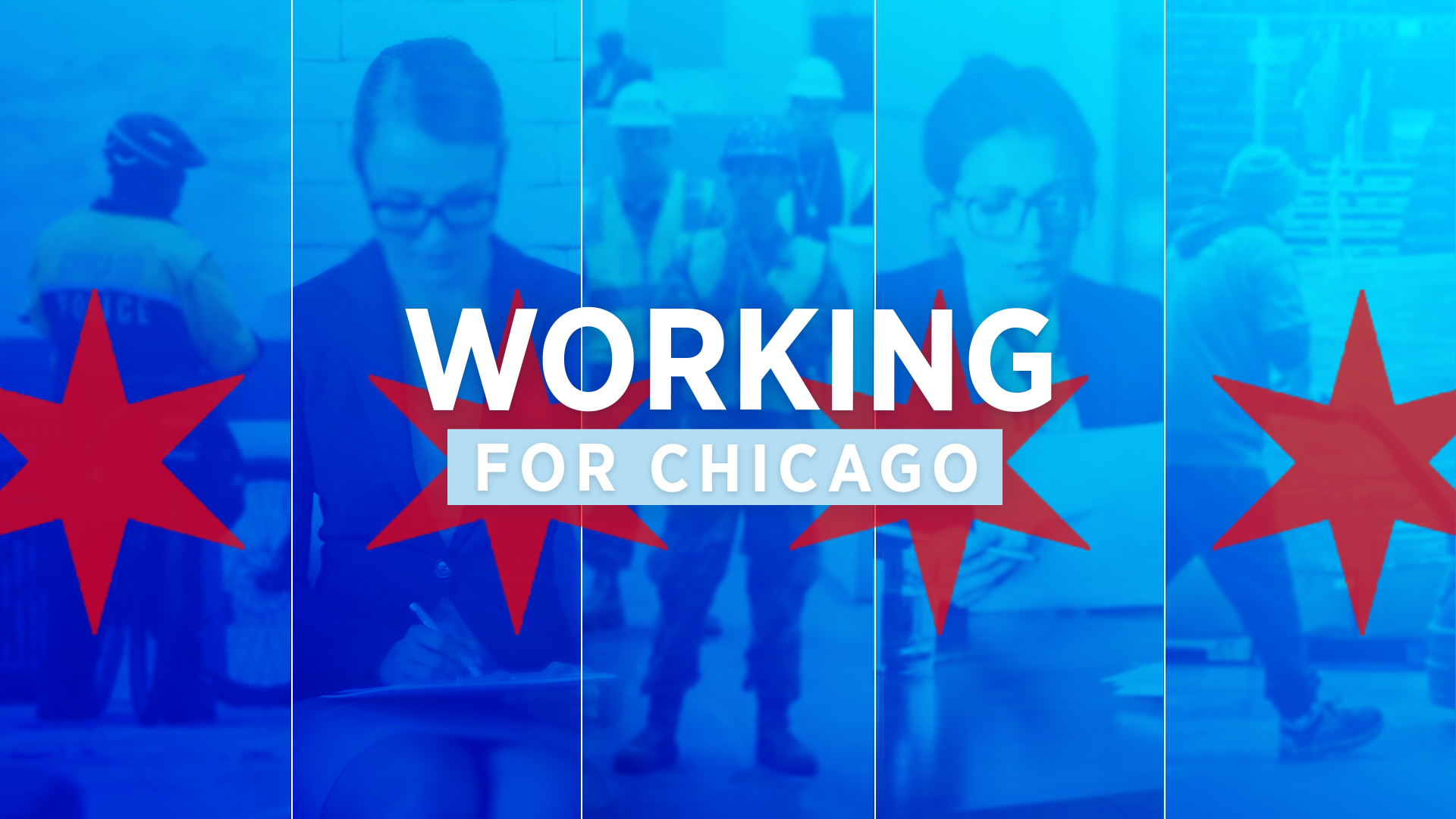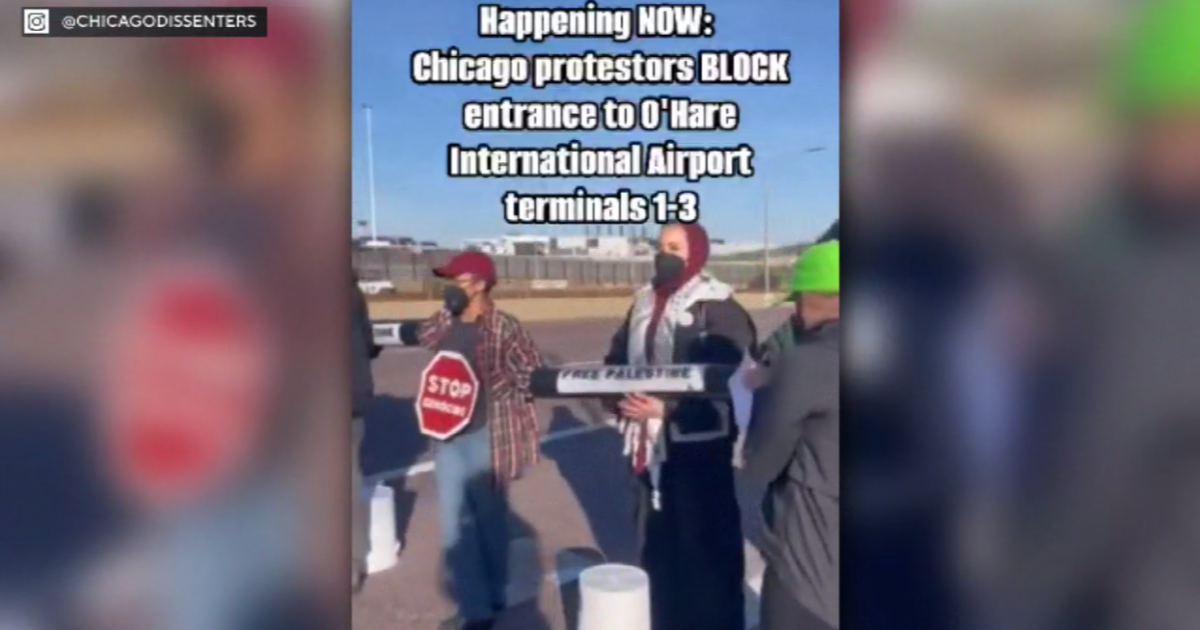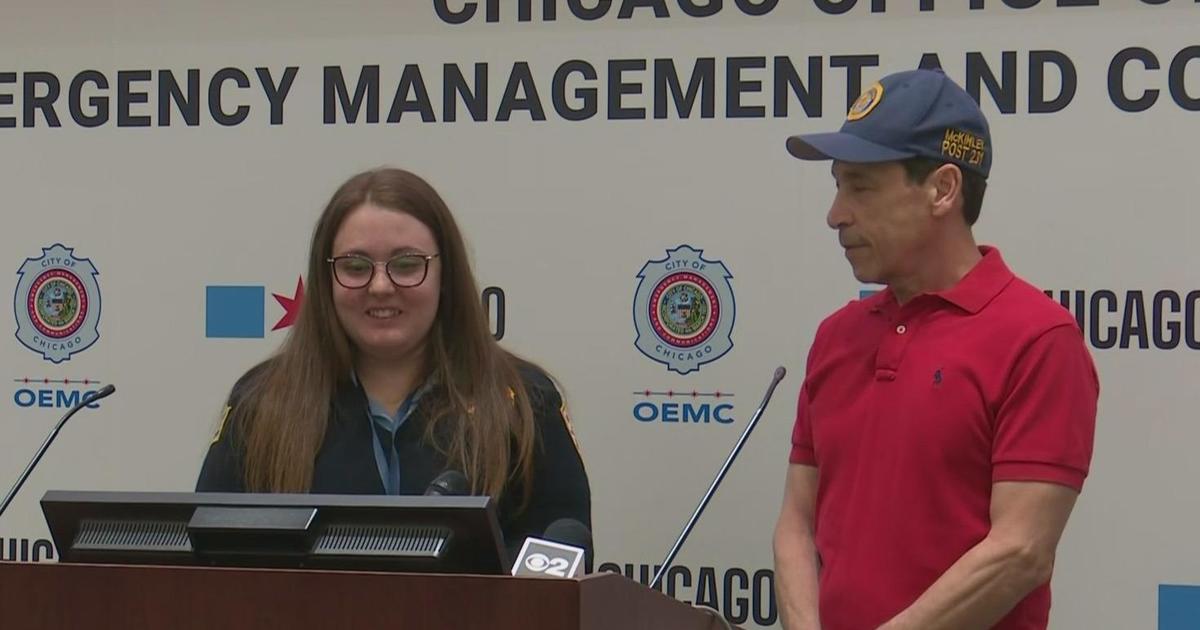State Rep. Calls Foul Over IDES Having Claimants Fill Out Paperwork To Waive Demand To Return Overpaid Benefits
CHICAGO (CBS) -- Thousands of jobless Illinoisans are being ordered to pay up for an overpayment mistake by the Illinois Department of Employment Security.
As CBS 2's Tara Molina reported Thursday night, one state lawmaker is so fired up about the issue that she wants the IDES to make a fix a first priority.
Overpayment waivers, in cases where it was not a person's fault they were overpaid benefits, were made possible through federal relief. But state Rep. Lindsey LaPointe (D-Chicago) has concerns about how IDES is handling that help.
"If IDES made a mistake, we should be remedying that as efficiently as we can," LaPointe said.
Thus, LaPointe is speaking out about the state's overpayment issue, saying if the state made a mistake that led to an overpaid claimant, she thinks the state should take more of a role in fixing it.
Right now, it's not.
LaPointe said the state could be reaching directly out to claimants they already know to be overpaid – which LaPointe called the proactive option.
"They know who they are," LaPointe said.
But instead of doing that, Illinois chose to send out more than 40,000 questionnaires to Pandemic Unemployment Assistance claimants.
"IDES is putting a paperwork mechanism in place to start the process of a claimant requesting their overpayment to be waived," LaPointe said. "That's not necessary."
IDES calls the questionnaire distribution the first step in requesting the waiver that would ultimately prevent any of those 40,000 people from paying for a mistake made at the state level.
Andrew Lothian is one of those 40,000.
"Definitely angry," he said. "I had to move out of my apartment. I had to change my life pretty drastically."
And after five unsuccessful phone calls with IDES, Lothian said he is trying it their way, and hoping "that somebody follows through on the things that I've been told."
Now, he is stuck waiting on the state again, when LaPointe said the solution should have been simple.
"So why would we create another loop?" LaPointe said "We should be making it as streamlined as we can, and I believe that IDES has the ability to do that."
LaPointe explained that the U.S. Department of Labor said the states could approach the problem of dealing with overpayment in two ways. States could wait until recipients ask for an overpayment waiver using the state's overpayment form, or they could just ask proactively to review overpayments on a case-by-case basis and grand wavers or return any money that has been repaid.
Instead, she said, the IDES is having overpaid unemployment claimants fill out paperwork.
"Again, this is an issue of equity," LaPointe followed up by email. "During this crisis, it is inhumane to ask people to fill out complicated forms when they're already overwhelmed – especially when they're frightened that they may be on the hook for thousands of dollars."
She reiterated that most of the overpayments occurred because of errors on IDES forms – not errors on the part of the claimants.
"I think it makes sense for IDES to take responsibility for reviewing these overpayments without making claimants initiate the process of waiving an overpayment balance," LaPointe wrote. "They should simply take action, and not create an additional burden for people who have so much to deal with already."
IDES spokeswoman Rebecca Cisco said in a statement that this is still a new process for them and it has just started. She included a document from the U.S. Department of Labor that spells out the rules for issuing overpayment waivers:
"First and foremost, the overpayment language contained in Continued Assistance Act is specific to overpayment waivers within the PUA program, and does not include language for overpayment waivers for regular state unemployment.
Attached you will find the UI Program Letter from U.S. DOL that, when combined with the Continued Assistance Act, serves as the basis by which states must administer the requests to waive recovery of PUA overpayments, and review requests to waive recovery on a case-by-case basis.
[scribd id=498400071 key=key-2ubm3GHH8YJppDf7L15b mode=scroll]
See the following language on page I-26:
'Waiver determinations must be made on the facts and circumstance of each individual claim, blanket waivers are not permissible. For example, states cannot waive overpayments due to administrative error for a group of individuals before first assessing and documenting why each individual meets the state's waiver requirements. The Department will monitor each state's process for waivers when monitoring program implementation.'
To date, roughly 40,000 PUA claimants have been sent the questionnaire, which is the first step in establishing a request for a recovery of overpayment waiver. This is a new process for the Department, and the first step in this process (the questionnaire) has just been undertaken. IDES will continue to work with PUA claimants on this ongoing process.

CBS 2 is committing to Working For Chicago, connecting you every day with the information you or a loved one might need about the jobs market, and helping you remove roadblocks to getting back to work.
We'll keep uncovering information every day to help this community get back to work, until the job crisis passes. CBS 2 has several helpful items right here on our website, including a look at specific companies that are hiring, and information from the state about the best way to get through to file for unemployment benefits in the meantime.
[wufoo username="cbslocalcorp" formhash="xkrloiw0xj564i" autoresize="true" height="685" header="show" ssl="true"]



